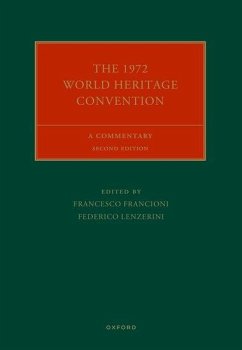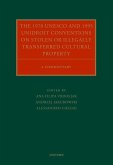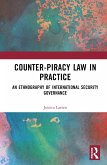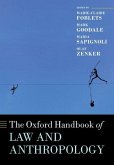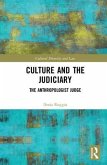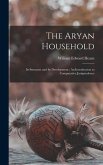- Gebundenes Buch
- Merkliste
- Auf die Merkliste
- Bewerten Bewerten
- Teilen
- Produkt teilen
- Produkterinnerung
- Produkterinnerung
This commentary examines the Convention Concerning the Protection of the World Cultural and Natural Heritage (the UNESCO World Heritage Convention), fifty years after its adoption. It explores the new challenges which have arisen in the management of world heritage sites and the Convention's impact on the evolution of international heritage law.
Andere Kunden interessierten sich auch für
![The 1970 UNESCO and 1995 Unidroit Conventions on Stolen or Illegally Transferred Cultural Property The 1970 UNESCO and 1995 Unidroit Conventions on Stolen or Illegally Transferred Cultural Property]() Ana Filipa VrdoljakThe 1970 UNESCO and 1995 Unidroit Conventions on Stolen or Illegally Transferred Cultural Property337,99 €
Ana Filipa VrdoljakThe 1970 UNESCO and 1995 Unidroit Conventions on Stolen or Illegally Transferred Cultural Property337,99 €![Common Heritage or Common Burden? Common Heritage or Common Burden?]() Markus G SchmidtCommon Heritage or Common Burden?206,99 €
Markus G SchmidtCommon Heritage or Common Burden?206,99 €![Confronting Colonial Objects Confronting Colonial Objects]() Carsten StahnConfronting Colonial Objects206,99 €
Carsten StahnConfronting Colonial Objects206,99 €![Counter-Piracy Law in Practice Counter-Piracy Law in Practice]() Jessica LarsenCounter-Piracy Law in Practice174,99 €
Jessica LarsenCounter-Piracy Law in Practice174,99 €![The Oxford Handbook of Law and Anthropology The Oxford Handbook of Law and Anthropology]() The Oxford Handbook of Law and Anthropology234,99 €
The Oxford Handbook of Law and Anthropology234,99 €![Culture and the Judiciary Culture and the Judiciary]() Ilenia RuggiuCulture and the Judiciary197,99 €
Ilenia RuggiuCulture and the Judiciary197,99 €![The Aryan Household: Its Structure and Its Development: An Introduction to Comparative Jurisprudence The Aryan Household: Its Structure and Its Development: An Introduction to Comparative Jurisprudence]() William Edward HearnThe Aryan Household: Its Structure and Its Development: An Introduction to Comparative Jurisprudence43,99 €
William Edward HearnThe Aryan Household: Its Structure and Its Development: An Introduction to Comparative Jurisprudence43,99 €-
-
-
This commentary examines the Convention Concerning the Protection of the World Cultural and Natural Heritage (the UNESCO World Heritage Convention), fifty years after its adoption. It explores the new challenges which have arisen in the management of world heritage sites and the Convention's impact on the evolution of international heritage law.
Hinweis: Dieser Artikel kann nur an eine deutsche Lieferadresse ausgeliefert werden.
Hinweis: Dieser Artikel kann nur an eine deutsche Lieferadresse ausgeliefert werden.
Produktdetails
- Produktdetails
- Verlag: Hurst & Co.
- 2nd edition
- Seitenzahl: 480
- Erscheinungstermin: 17. Januar 2024
- Englisch
- Abmessung: 234mm x 180mm x 48mm
- Gewicht: 975g
- ISBN-13: 9780198877448
- ISBN-10: 0198877447
- Artikelnr.: 68061113
- Herstellerkennzeichnung
- Libri GmbH
- Europaallee 1
- 36244 Bad Hersfeld
- gpsr@libri.de
- Verlag: Hurst & Co.
- 2nd edition
- Seitenzahl: 480
- Erscheinungstermin: 17. Januar 2024
- Englisch
- Abmessung: 234mm x 180mm x 48mm
- Gewicht: 975g
- ISBN-13: 9780198877448
- ISBN-10: 0198877447
- Artikelnr.: 68061113
- Herstellerkennzeichnung
- Libri GmbH
- Europaallee 1
- 36244 Bad Hersfeld
- gpsr@libri.de
Francesco Francioni is Professor Emeritus of International Law at the European University Institute. He has published extensively in the field of international law and held the Chair of International Law at the University of Siena from 1980 to 2003. He was a visiting professor at the University of Texas, Austin, from 1987 to 2008 and has taught as a visiting professor at the Universities of Cornell, Oxford , Munich, and Columbia, NY. He is a legal consultant for UNESCO and has participated in the negotiation of the main treaties and protocols concerning the protection of cultural heritage of the past 25 years. In 1987 and 1988 he was President of the UNESCO World Heritage Committee. Federico Lenzerini is Professor of international law and European Union law for the Faculty of Law of the University of Siena. He is a consultant of UNESCO for the Department for the Protection of Cultural Heritage and the Legal Counsel of the Ministry of Foreign Affairs for international negotiations relative to the protection of cultural property. He is a member of the "Italian International Law Society " and the "Biotechnology Committee" of the International Law Association. His relevant areas of research are human rights protection, the right to asylum (under the double profile of general international law and of community law), rights of indigenous populations (according to comparative and international law), International Business and Trade Law, the international protection of cultural heritage, and cultural diversity.
* PART I. INTRODUCTION
* The 1972 World Heritage Convention: An Introduction
* Conceptual Developments of the World Heritage Convention
* PART II. COMMENTARY
* The Preamble
* Article 1 Definition of Cultural Heritage
* Article 1 Cultural Landscapes
* Article 2 Definition of Natural Heritage
* Article 3 Identification and Delineation of World Heritage Properties
* Articles 4-7 National and International Protection of the Cultural
and Natural Heritage
* Articles 8-11 World Heritage Committee and World Heritage List
* Article 11 List of World Heritage in Danger and Deletion of a
Property from the World Heritage List
* Article 12 Protection of Properties Not Inscribed on the World
Heritage List
* Article 13 World Heritage Committee and International Assistance
* Article 14 The Secretariat and Support of the World Heritage
Committee
* Articles 15-18 World Heritage Fund
* Articles 19-26 International Assistance
* Articles 27-28 Educational Programmes
* Article 29 Reports
* Article 34 Federal or Non-Unitary Constitutional Systems
* Articles 30-33 and 35-38 Final Clauses
* PART III. RELATION OF THE WORLD HERITAGE CONVENTION WITH OTHER
RELEVANT INTERNATIONAL REGIMES
* The 1972 World Heritage Convention in the Framework of Other UNESCO
Conventions and Other Instruments on Cultural Heritage
* The World Heritage Convention and Other Conventions Relating to the
Protection of the Natural Heritage
* World Heritage and Human Rights
* The World Heritage Convention and the Rights of Indigenous Peoples
* The World Heritage Convention and the Law of the Sea
* The World Heritage Convention and International Investment Law
* PART IV. CONCLUSIONS
* The Future of the World Heritage Convention: Problems and Prospects
* The 1972 World Heritage Convention: An Introduction
* Conceptual Developments of the World Heritage Convention
* PART II. COMMENTARY
* The Preamble
* Article 1 Definition of Cultural Heritage
* Article 1 Cultural Landscapes
* Article 2 Definition of Natural Heritage
* Article 3 Identification and Delineation of World Heritage Properties
* Articles 4-7 National and International Protection of the Cultural
and Natural Heritage
* Articles 8-11 World Heritage Committee and World Heritage List
* Article 11 List of World Heritage in Danger and Deletion of a
Property from the World Heritage List
* Article 12 Protection of Properties Not Inscribed on the World
Heritage List
* Article 13 World Heritage Committee and International Assistance
* Article 14 The Secretariat and Support of the World Heritage
Committee
* Articles 15-18 World Heritage Fund
* Articles 19-26 International Assistance
* Articles 27-28 Educational Programmes
* Article 29 Reports
* Article 34 Federal or Non-Unitary Constitutional Systems
* Articles 30-33 and 35-38 Final Clauses
* PART III. RELATION OF THE WORLD HERITAGE CONVENTION WITH OTHER
RELEVANT INTERNATIONAL REGIMES
* The 1972 World Heritage Convention in the Framework of Other UNESCO
Conventions and Other Instruments on Cultural Heritage
* The World Heritage Convention and Other Conventions Relating to the
Protection of the Natural Heritage
* World Heritage and Human Rights
* The World Heritage Convention and the Rights of Indigenous Peoples
* The World Heritage Convention and the Law of the Sea
* The World Heritage Convention and International Investment Law
* PART IV. CONCLUSIONS
* The Future of the World Heritage Convention: Problems and Prospects
* PART I. INTRODUCTION
* The 1972 World Heritage Convention: An Introduction
* Conceptual Developments of the World Heritage Convention
* PART II. COMMENTARY
* The Preamble
* Article 1 Definition of Cultural Heritage
* Article 1 Cultural Landscapes
* Article 2 Definition of Natural Heritage
* Article 3 Identification and Delineation of World Heritage Properties
* Articles 4-7 National and International Protection of the Cultural
and Natural Heritage
* Articles 8-11 World Heritage Committee and World Heritage List
* Article 11 List of World Heritage in Danger and Deletion of a
Property from the World Heritage List
* Article 12 Protection of Properties Not Inscribed on the World
Heritage List
* Article 13 World Heritage Committee and International Assistance
* Article 14 The Secretariat and Support of the World Heritage
Committee
* Articles 15-18 World Heritage Fund
* Articles 19-26 International Assistance
* Articles 27-28 Educational Programmes
* Article 29 Reports
* Article 34 Federal or Non-Unitary Constitutional Systems
* Articles 30-33 and 35-38 Final Clauses
* PART III. RELATION OF THE WORLD HERITAGE CONVENTION WITH OTHER
RELEVANT INTERNATIONAL REGIMES
* The 1972 World Heritage Convention in the Framework of Other UNESCO
Conventions and Other Instruments on Cultural Heritage
* The World Heritage Convention and Other Conventions Relating to the
Protection of the Natural Heritage
* World Heritage and Human Rights
* The World Heritage Convention and the Rights of Indigenous Peoples
* The World Heritage Convention and the Law of the Sea
* The World Heritage Convention and International Investment Law
* PART IV. CONCLUSIONS
* The Future of the World Heritage Convention: Problems and Prospects
* The 1972 World Heritage Convention: An Introduction
* Conceptual Developments of the World Heritage Convention
* PART II. COMMENTARY
* The Preamble
* Article 1 Definition of Cultural Heritage
* Article 1 Cultural Landscapes
* Article 2 Definition of Natural Heritage
* Article 3 Identification and Delineation of World Heritage Properties
* Articles 4-7 National and International Protection of the Cultural
and Natural Heritage
* Articles 8-11 World Heritage Committee and World Heritage List
* Article 11 List of World Heritage in Danger and Deletion of a
Property from the World Heritage List
* Article 12 Protection of Properties Not Inscribed on the World
Heritage List
* Article 13 World Heritage Committee and International Assistance
* Article 14 The Secretariat and Support of the World Heritage
Committee
* Articles 15-18 World Heritage Fund
* Articles 19-26 International Assistance
* Articles 27-28 Educational Programmes
* Article 29 Reports
* Article 34 Federal or Non-Unitary Constitutional Systems
* Articles 30-33 and 35-38 Final Clauses
* PART III. RELATION OF THE WORLD HERITAGE CONVENTION WITH OTHER
RELEVANT INTERNATIONAL REGIMES
* The 1972 World Heritage Convention in the Framework of Other UNESCO
Conventions and Other Instruments on Cultural Heritage
* The World Heritage Convention and Other Conventions Relating to the
Protection of the Natural Heritage
* World Heritage and Human Rights
* The World Heritage Convention and the Rights of Indigenous Peoples
* The World Heritage Convention and the Law of the Sea
* The World Heritage Convention and International Investment Law
* PART IV. CONCLUSIONS
* The Future of the World Heritage Convention: Problems and Prospects

